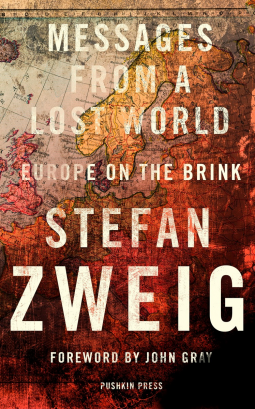
Messages from a Lost World
Europe on the Brink
by Stefan Zweig
This title was previously available on NetGalley and is now archived.
Send NetGalley books directly to your Kindle or Kindle app
1
To read on a Kindle or Kindle app, please add kindle@netgalley.com as an approved email address to receive files in your Amazon account. Click here for step-by-step instructions.
2
Also find your Kindle email address within your Amazon account, and enter it here.
Pub Date Mar 22 2016 | Archive Date Jan 14 2016
Description
These essays form the natural accompaniment to Zweig's renowned memoir The World of Yesterday, registering the same themes and evoking the same nostalgia for a world brutally consigned to history. They can be seen as a vital addendum to that major work or as a prefiguration. But perhaps even more so than the prose of the memoir, these essays, few in number but rich in content, reveal the essence of Zweig's thought.
Advance Praise
'Zweig's impassioned pursuit of personal freedom seems more relevant than ever' Newsweek
'One of liberalism's greatest defenders' New Republic
'Zweig's impassioned pursuit of personal freedom seems more relevant than ever' Newsweek
Available Editions
| EDITION | Other Format |
| ISBN | 9781782271550 |
| PRICE | $25.00 (USD) |
Average rating from 9 members
Featured Reviews
Not exactly a wail of prescient anguish against the convulsions of pre- WWII Europe, Zweig is far to Old World, but rather a studied, intellectual, and rather distant lament for his Europe. He is not going to give the reader the firebrand anger that one may hope for, but it is an insightful look into the middle class in troubled times. Given his flight to Latin America and subsequent suicide, these essays read like a modest prayer against the inevitable. Well worth your time.






